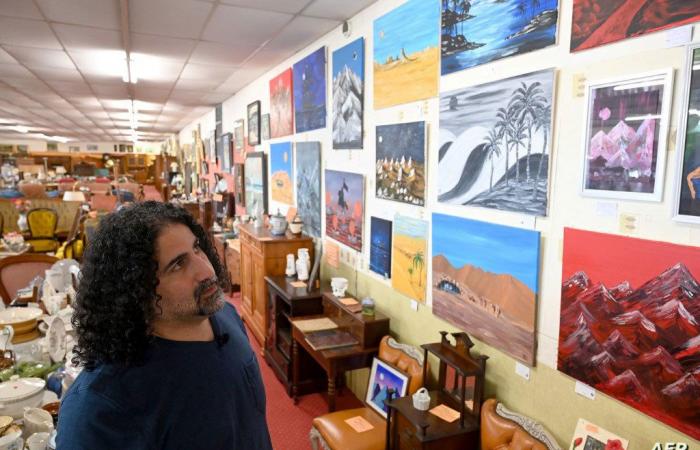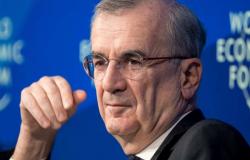
Tunisian President Kais Saied won a second five-year term after a landslide victory, even though the elections witnessed one of the lowest turnout rates in the history of the country, which is suffering from an ongoing economic crisis and where criticism is mounting regarding the reality of freedoms.
The Independent High Electoral Commission announced on Monday evening that Saeed won 90.7 percent of the votes in Sunday’s elections, with a turnout rate of 27.7 percent.
With Saied leading the elections, questions are at the forefront of the Tunisian scene regarding the extent of his ability to address the rampant economic crisis, which is weighing heavily on the daily lives of citizens, his dealings with the human rights situation in the country, and whether his second term will witness a breakthrough or a “continuation” of the previous approach during which he faced sharp criticism. Concerning the decline of public freedoms and the suppression of opposition.
“Flaming files”
2.4 million people voted for Saeed, while his imprisoned competitor, Al-Ayashi Zamal, received 197,000 votes, with a percentage of (7.35%), and the former MP, Zuhair Al-Maghzawi, 52,000 (1.97%), according to the Election Commission.
The participation rate was 28.8 percent, the lowest since the revolution that overthrew the regime of Zine El Abidine Ben Ali in 2011.
Tunisia is going through a severe economic crisis represented by debts exceeding 80 percent of the gross domestic product, a slowdown in growth, expected to be less than 2 percent this year, in addition to high unemployment rates.
Many store shelves are increasingly devoid of subsidized food items, in addition to power and water outages, and Tunisians also complain about poor public services.
Political analyst, Nizar Al-Jalidi, confirms that “common issues” await the re-elected president, most notably defining the country’s development strategy, noting that after the failure of previous attempts, urgent, short- and medium-term solutions must be provided to the current social crisis.
Al-Julaidi describes the next stage as a “delicate surgical operation” to determine the optimal development model and save what can be saved, adding that there is an urgent need to make legislative amendments related to foreign investment and the banking sector, in addition to combating corruption and strengthening political initiative.
The economic growth rate during 2023 was about 0.4 percent, affected by a drought crisis that has been ongoing for 5 years. The ratio of internal and external debt is approximately 80 percent of the gross domestic product.
While Al-Jlidi stressed in his statement to Al-Hurra website that the economic and social situation in Tunisia is “extremely difficult,” he stresses “the importance of the final separation from the World Bank that was achieved recently.”
Last year, President Saied rejected an initial agreement concluded with the International Monetary Fund to obtain a new loan worth two billion dollars, considering the reforms recommended by the Fund, including the restructuring of government companies and the gradual lifting of subsidies on some basic products, as “dictations.”
It also indicates Tunisia’s success in mobilizing important resources to fill the existing gaps. However, in the next stage, this situation requires, according to him, the introduction of a new development project during the second presidential term.
Tunisia, with a population of 12 million, has been suffering from high inflation rates for two years (10 percent on average annually) with food prices sometimes tripling, which has led to a decline in the conditions of the working classes and the middle class.
Tunisia.. Two presidential candidates doubt “results” indicating Saied’s victory
The two candidates in the Tunisian presidential elections against current President Kais Saied questioned the results of an opinion poll announced on Sunday evening, describing them as “untrue.”
Tunisian economist, Reda Shakandali, believes that combating rising inflation represents the most prominent economic challenge in Tunisia.
In a statement to Al-Hurra website, Shakandali stresses the necessity of adopting new economic mechanisms to confront rising prices, considering that previous policies did not succeed in curbing inflation.
He proposes a package of measures to stimulate growth, most notably encouraging private investment by reducing taxes, lowering interest rates, and removing bureaucratic obstacles to investors.
The economist also calls for developing the public sector, with a focus on vital sectors such as phosphate.
Tourism and financial aid from European countries concerned about migration helped Tunisia avoid the need for an International Monetary Fund loan with harsh terms. However, public finances are still suffering from difficulties that have led to a shortage of imports of key goods.
In this aspect, Shkendali stresses the importance of making the most of remittances from Tunisian immigrants, which have played an important role in supporting the economy recently.
He also points out the need to address the crisis in the agricultural sector resulting from drought and the high prices of agricultural materials, stressing the importance of reviving this sector to ensure food security and reduce pressure on food prices in local markets.
Tunisia after Saeed’s victory…a breakthrough or more suppression of freedoms?
Despite doubts about its results and the participation rate, it seems that Tunisia has turned the page on the presidential elections, after the outgoing president, Kais Saied, won it, according to opinion polls, as it will begin a new era that will last for five years, which raises questions about whether it will witness breakthroughs. Clear or more “suppression” of political and civil liberties, as opponents say.
Rights and freedoms file
Saied’s re-election came after he was subjected, throughout his first term, to severe criticism from Tunisian and international human rights organizations, which saw that there was an “authoritarian deviation” in the country, after a widespread arrest campaign targeting a group of prominent figures, which in recent weeks affected potential candidates to compete with him in the election. Elections.
The detainees, most of whom remain in detention, are being charged with serious charges related to “conspiracy against the internal and external security of the state,” and under Decree 54 on publishing and broadcasting false news.
On the other hand, Saeed repeats on various occasions that “liberties are guaranteed in the country.” Instead, he describes some of his opponents as traitors and says his political platform aims to eliminate corruption.
Political science professor, Al-Saghir Al-Zakrawi, believes that the decline and restrictions on freedoms remain the second most pressing issue in Tunisia after the economy, wondering whether the Presidency of the Republic will continue its previous approach of restricting freedoms of expression, opinion, and the press.
The Tunisian academic explains that in light of these multiple challenges, Saied did not present a clear plan to address the country’s crises, which means that the next stage lacks a “compass and a clear-cut program.”
After his election in 2019, Saied took control of most powers in 2021 when he dissolved the elected parliament, dismissed the government and rewrote the constitution himself, moves that the opposition described as a coup.
Al-Zakrawi asserts that the time has come for Saeed to break with the practices of the previous stage, but he points out that initial indicators suggest the continuation of the previous approach, in light of non-competitive elections, the arrest of opponents, and the quest to dominate the political and media scene.
He believes that the country has become “a hostage to Saied’s tendencies,” in light of the presence of a parliament and formal institutions, where decisions are issued unilaterally by the presidency. Therefore, expectations and hopes remain unclear.
After Kais Saied’s “victory”… What do the results of the Tunisian presidential elections mean?
The estimated results of an opinion poll presented by the “Sigma Conseil” Foundation, on Sunday evening, showed that outgoing President Kais Saied won the Tunisian presidential elections, with a percentage exceeding 89 percent, ahead of his competitors, Al-Ayachi Zamal (6.9 percent) and Zouhair Al-Maghzaoui (3.9 percent).
In a report published in January, Human Rights Watch expressed its regret at recording “a further decline in human rights and the rule of law during 2023, in the absence of any real controls on the authority of President Kais Saied.”
She added that the Tunisian authorities have taken new steps “to silence free expression, prosecute opponents, and suppress immigrants and asylum seekers.”
According to the Tunisian Journalists Syndicate, more than 60 people are being prosecuted under a decree (known as Decree 54) that punishes the publication of “fake news” and is widely criticized as “limiting freedom of expression.”
The director of the Tunisian Observatory for Human Rights, Mustafa Abdel Kabir, in turn highlights the major challenges facing the president in the next phase, stressing that they mainly revolve around pressing human rights issues, manifested in restrictions on opponents and activists, in addition to the rampant economic and social crises that are troubling the Tunisian street.
In his statement to the Al-Hurra website, Abdel Kabir confirms that Saeed’s victory in the recent elections came despite the widespread wave of criticism that prolonged his first term.
Accordingly, the president “is required today more than ever to listen to the pulse of the street and address the deep imbalances that occurred during the previous stage,” as he put it.
Abdel Kabir recalls the massive protests that preceded the elections, on Friday, when thousands of Tunisians came out to express their dissatisfaction with the deteriorating economic conditions and the restriction of freedoms, considering that these protests reflect the scale of the challenges that await the president in his new term.
The speaker stresses that the real challenge lies in the extent of the president’s ability to address these complex problems.
He believes that Saeed’s success in this endeavor depends on the extent of his willingness to deal seriously with the issue of political prisoners, reconsider the issue of freedoms, and restore his relationship with unions and professional and national organizations.




